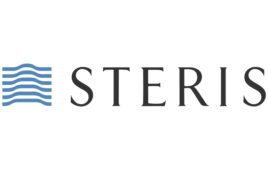
Photo by Louis Velazquez on Unsplash
Congressmen from Illinois and Georgia have formed a bipartisan task force to pressure the Environmental Protection Agency to place stricter limits on ethylene oxide (EtO) emissions from medtech sterilization and other industrial uses.
Illinois Democrat Rep. Brad Schneider and Georgia Republican Rep. Jody Hice put together the task force in support of a bill Schneider introduced in February. H.R. 1152 would require the EPA to issue strict, new EtO emissions standards and notify the public no more than 30 days after it learns that the new standards have been violated. Task force members include two Democrats and two Republicans from Georgia, four Illinois Democrats and one Democrat from Pennsylvania.
The EPA recently proposed a regulation that would require slashing industrial emissions of EtO by 93% nationwide. While that proposal doesn’t affect medtech directly, it may not bode well for an industry that relies on the gas.
The February shutdown of a major Sterigenics EtO plant in Willowbrook, Ill. prompted the first in a series of FDA warnings about possible device shortages. Two other shutdowns followed in Georgia (one plant has since reopened), but state and local scrutiny of EtO emissions and public outcry may lead to what one industry advocate called a “rolling effect” of plant shutdowns and device shortages nationwide.
EtO sterilization works at low temperatures — between 90°F and 135°F — making it a viable option for devices made of multiple components and materials, including plastics, polymers, metals and glass, as well as coatings, bonds and packaging from damage. It can also penetrate different types of device packaging, enabling sterilizers to process truckloads’ worth of devices simultaneously.
The EPA is due to come out with proposed rules regarding commercial EtO operations in May 2020, but Schneider and Hice say the country has been waiting too long. The EPA declared EtO a carcinogen in 2016.
“My constituents are rightly concerned about emissions of ethylene oxide, and that is why we need the U.S. EPA to release science-based rules and educate the public on the threat of EtO so that local families can have confidence in the air they breathe,” Schneider said in a news release. “With my colleagues in the Illinois congressional delegation, I have urged the U.S. EPA to do its job, but this is a problem with scope beyond just our state.”
“Our Congressional districts face the threat of ethylene oxide emissions, and acting as individuals, many of us have already called upon the EPA to carry out its duty to properly regulate this toxic chemical,” Hice added.
Meanwhile, the FDA is seeking public input on alternatives to EtO and on methods to reduce emissions. The agency has been mum about responses to its pleas, issued in July. Medtech advocates argue that even if a viable alternative surfaces, it would take years and significant investments to institute, including the time to validate the new method for each device it would sterilize.


